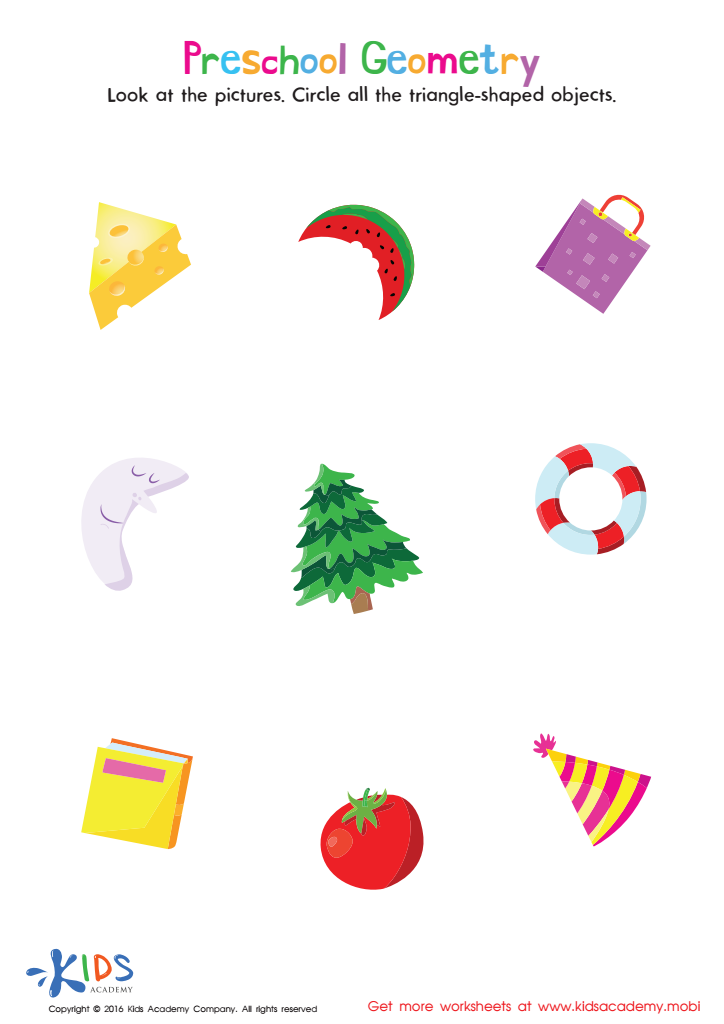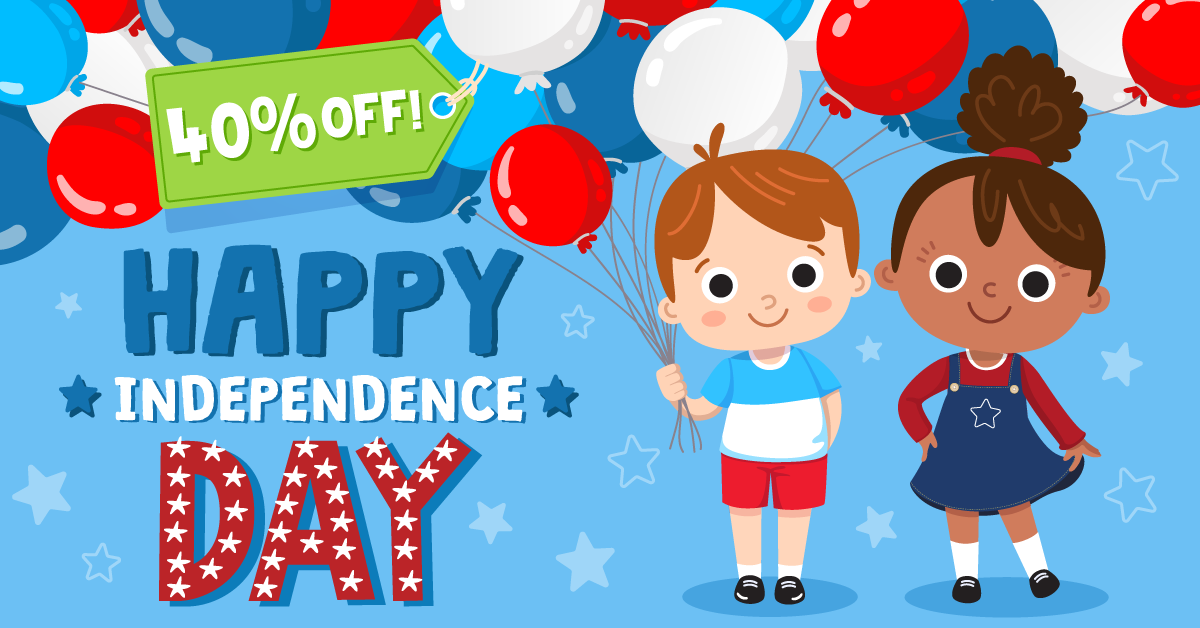Basic geometry understanding Worksheets for Ages 3-9
13 filtered results
-
From - To
Welcome to our Basic Geometry Understanding Worksheets for Ages 3-9! Designed to cultivate early math skills, these engaging worksheets help children grasp fundamental concepts of shapes, sorting, and spatial awareness. Our user-friendly resources are perfect for parents and teachers aiming to enhance young learners' geometric knowledge through fun activities. From identifying shapes like circles and squares to practicing measurement and patterns, these worksheets offer varied exercises to strengthen cognitive development. Print, share, and inspire a love for learning in young minds while providing a solid foundation in geometry. Explore our collection and watch creativity and confidence flourish!
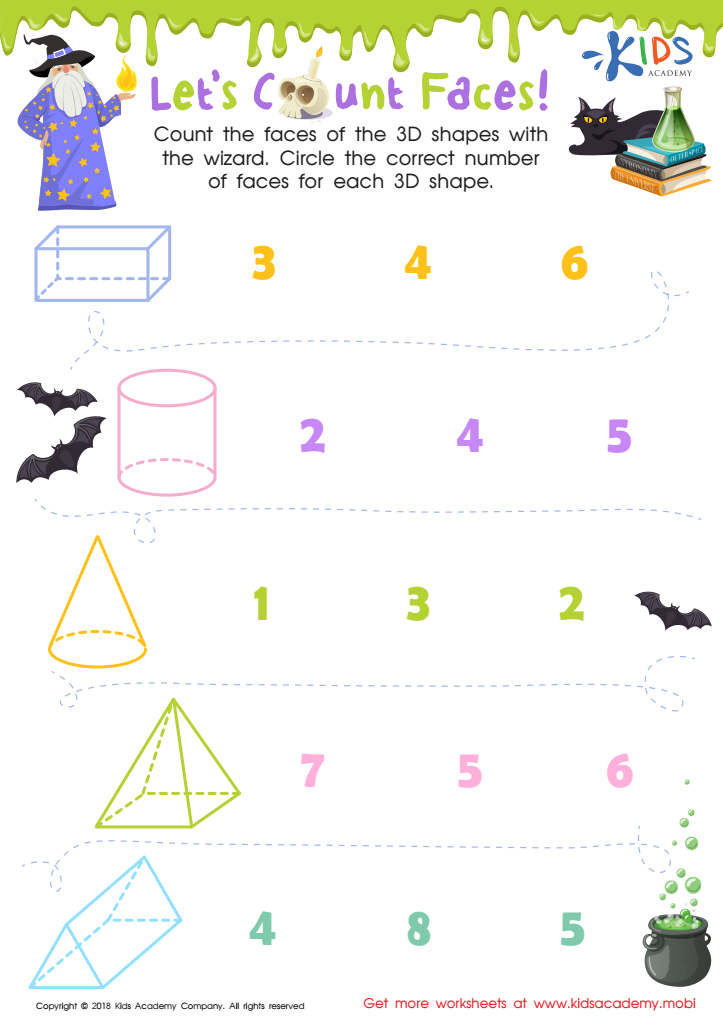

Let's Count Faces! Worksheet
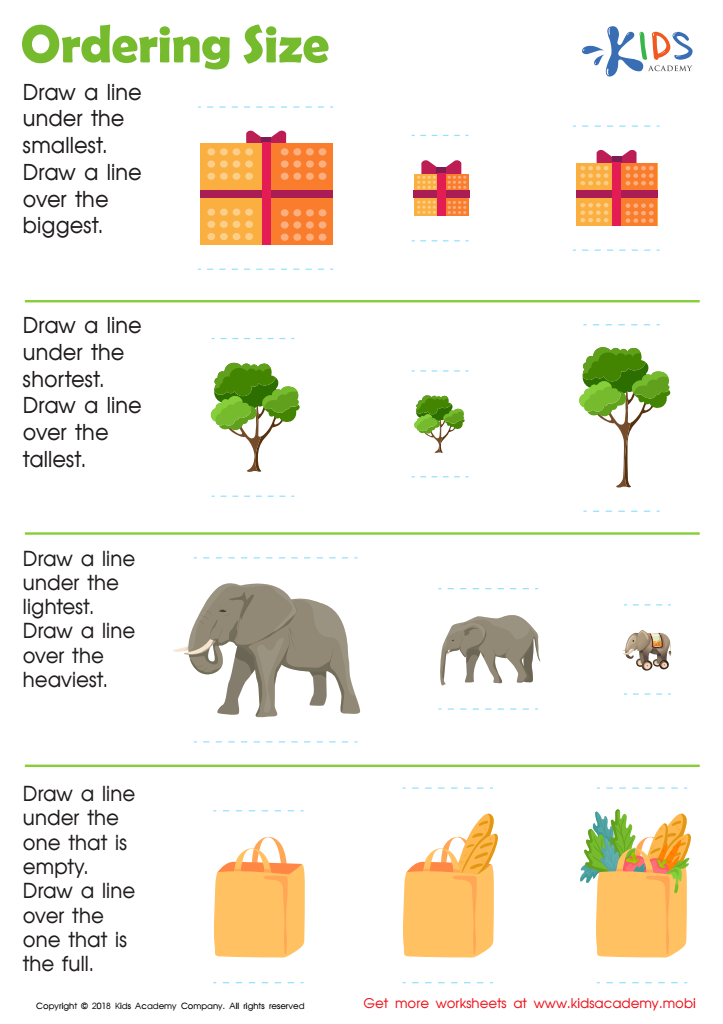

Ordering Size Worksheet
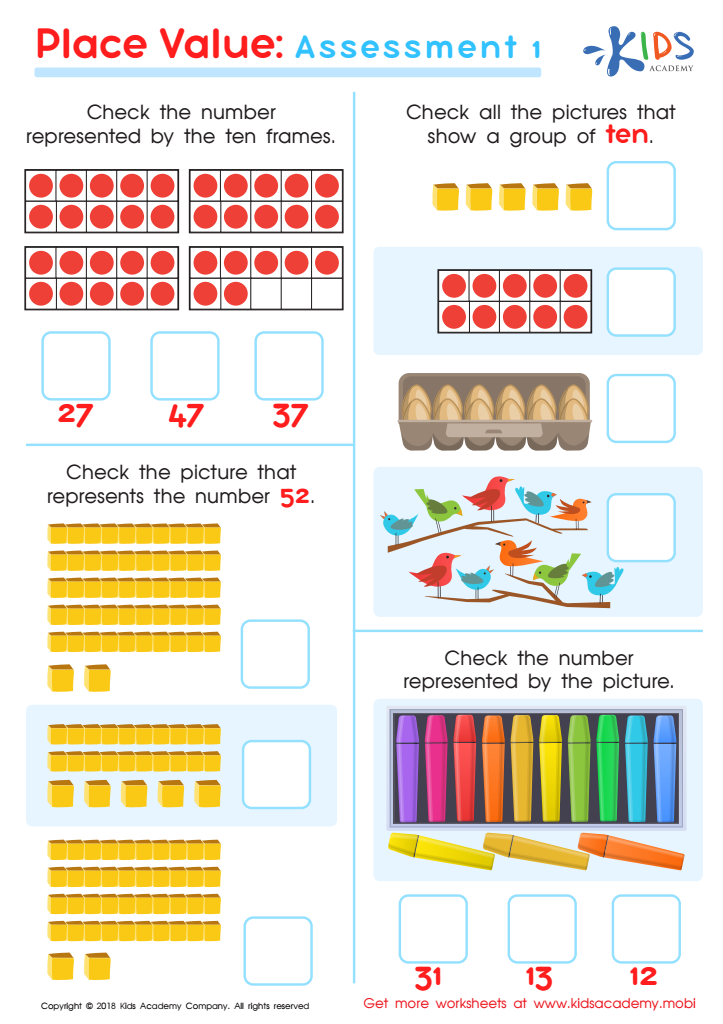

Place Value: Assessment 1 Worksheet
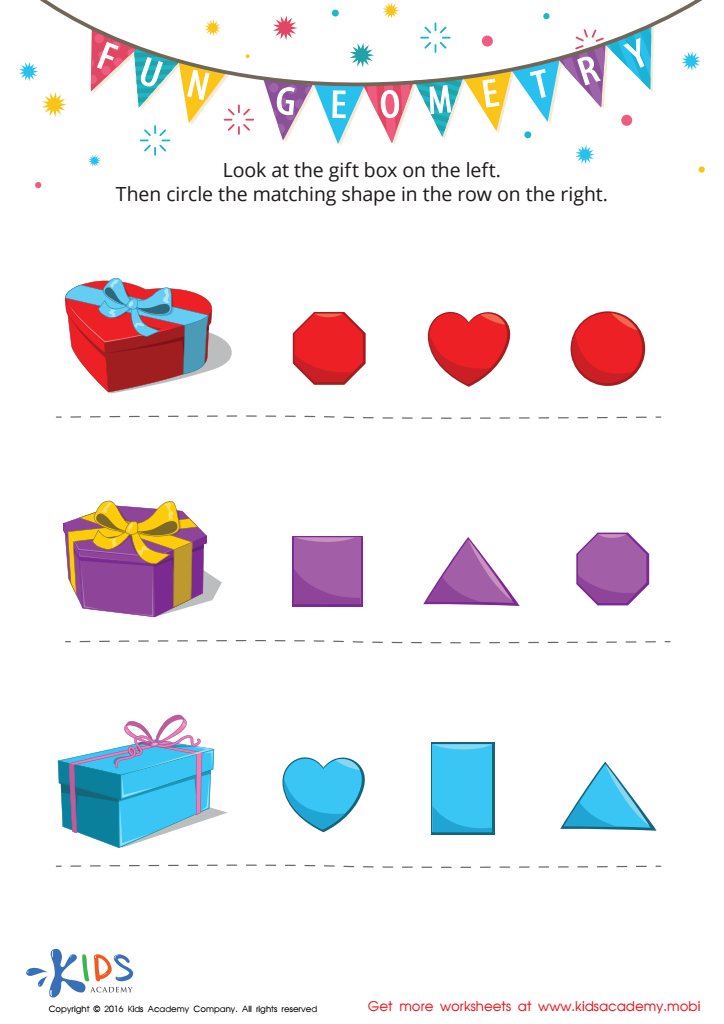

Fun Geometry Worksheet
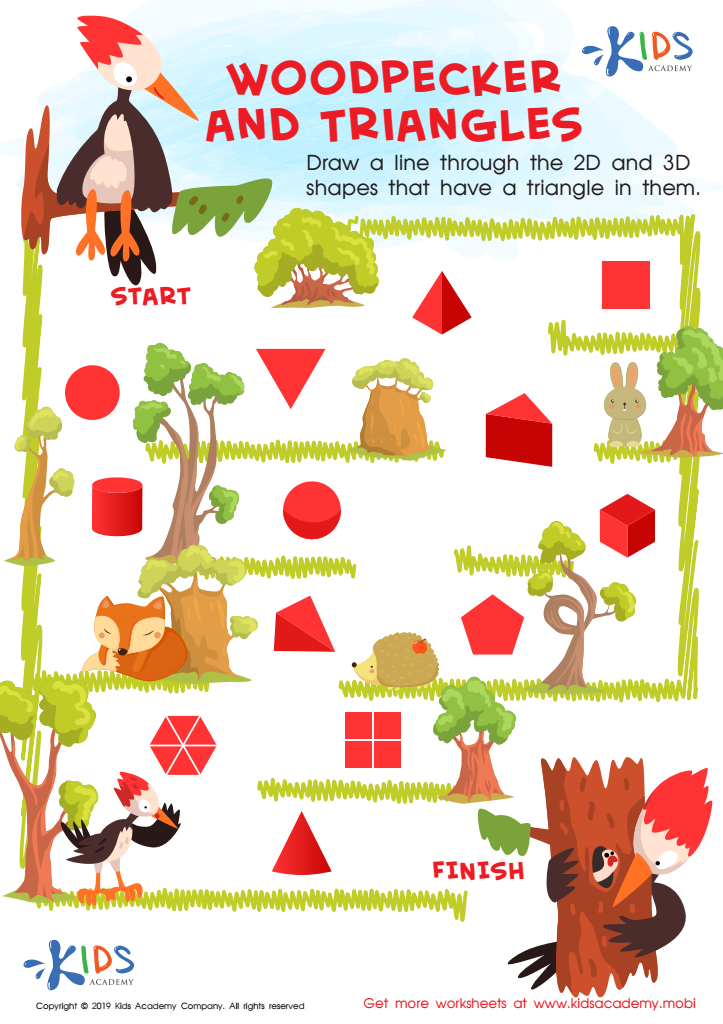

Woodpecker and Triangles Worksheet
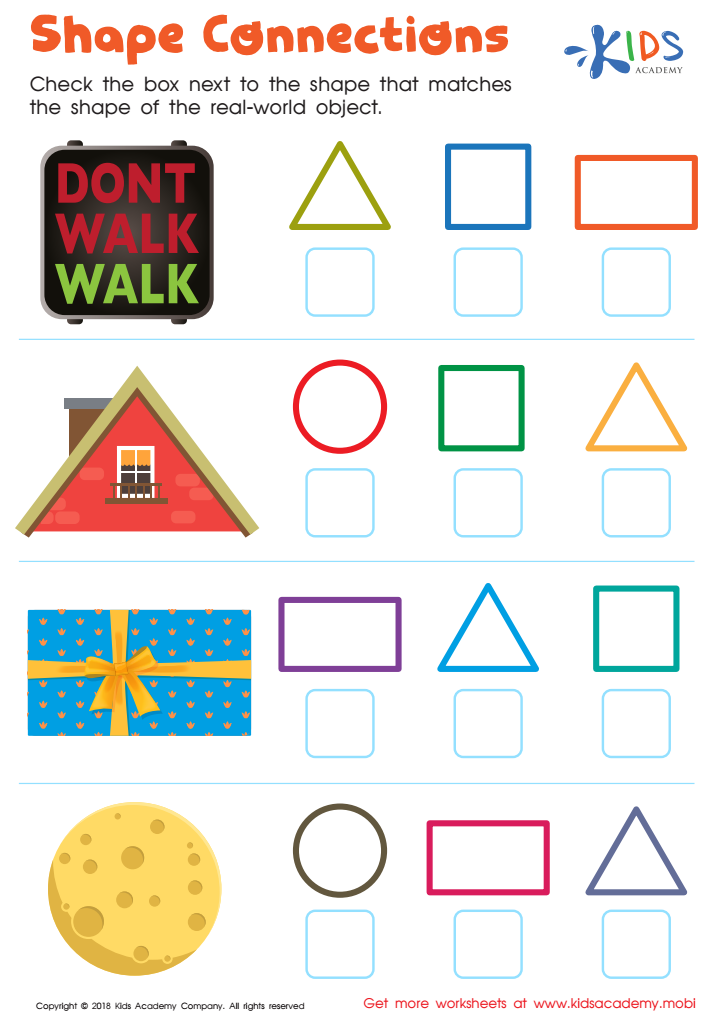

Shape Connections Worksheet
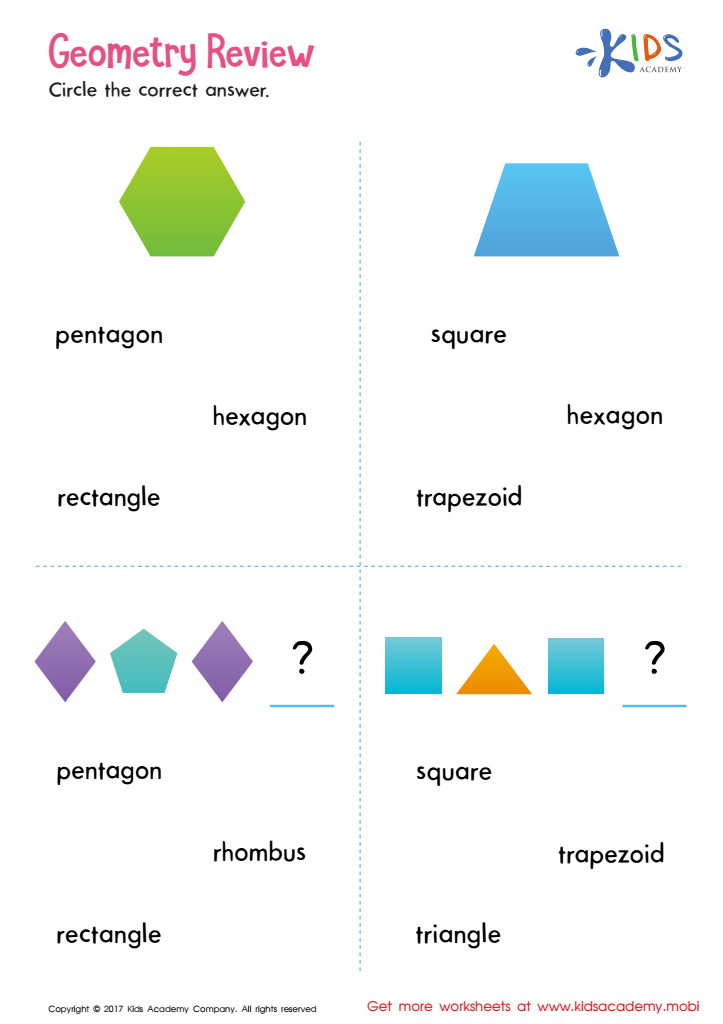

Geometry Review Printable
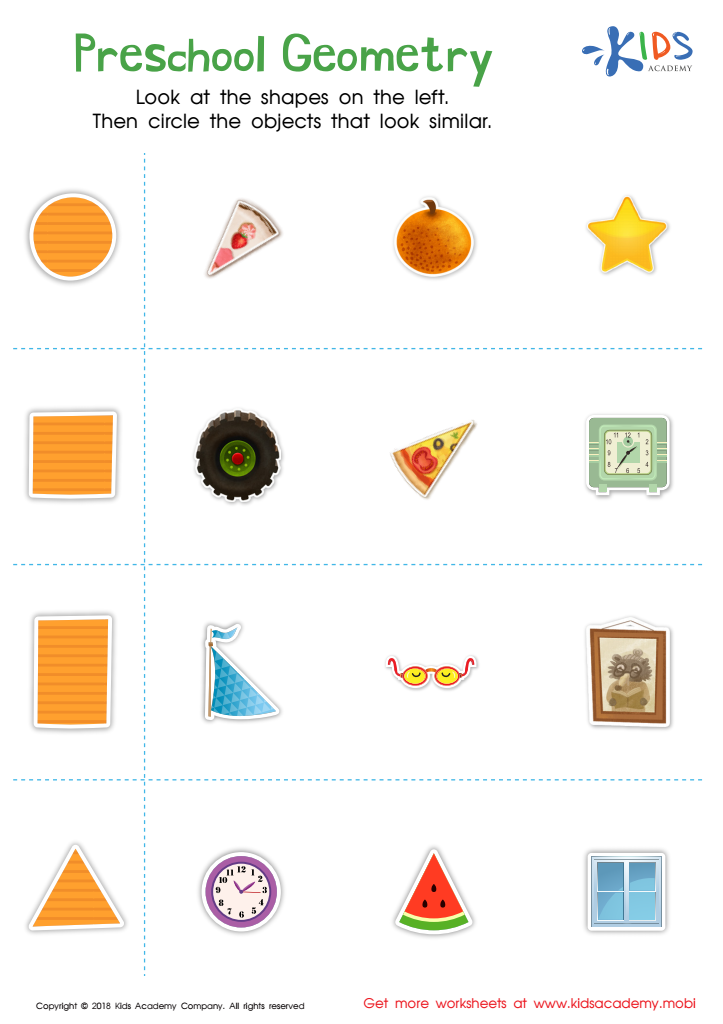

Preschool Geometry Worksheet
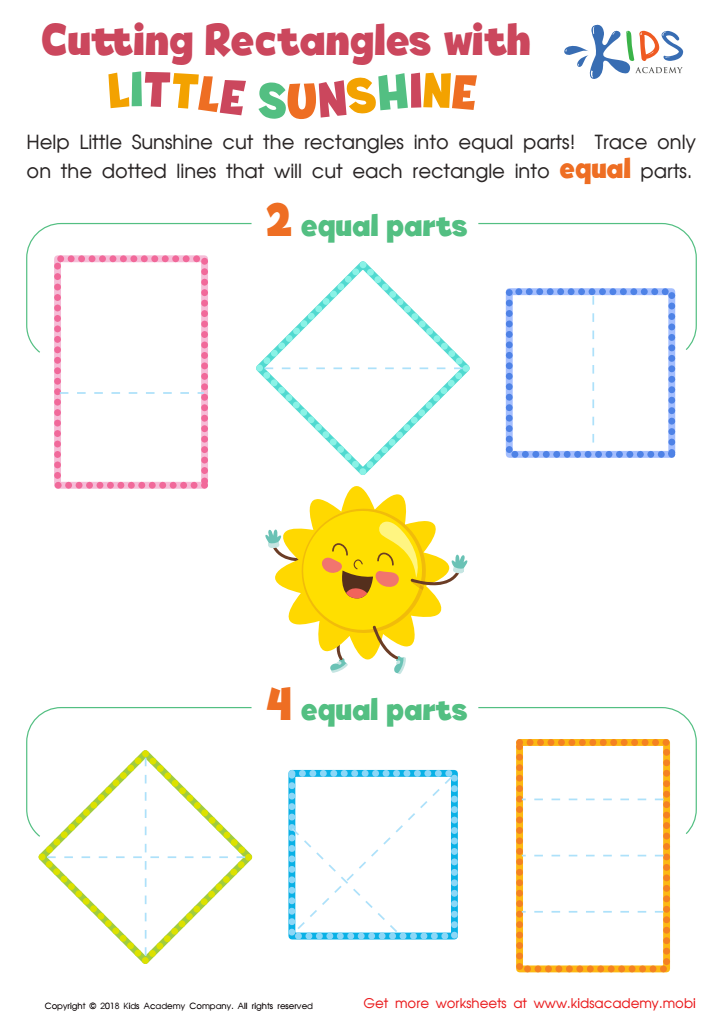

Cutting Rectangles with Little Sunshine Worksheet
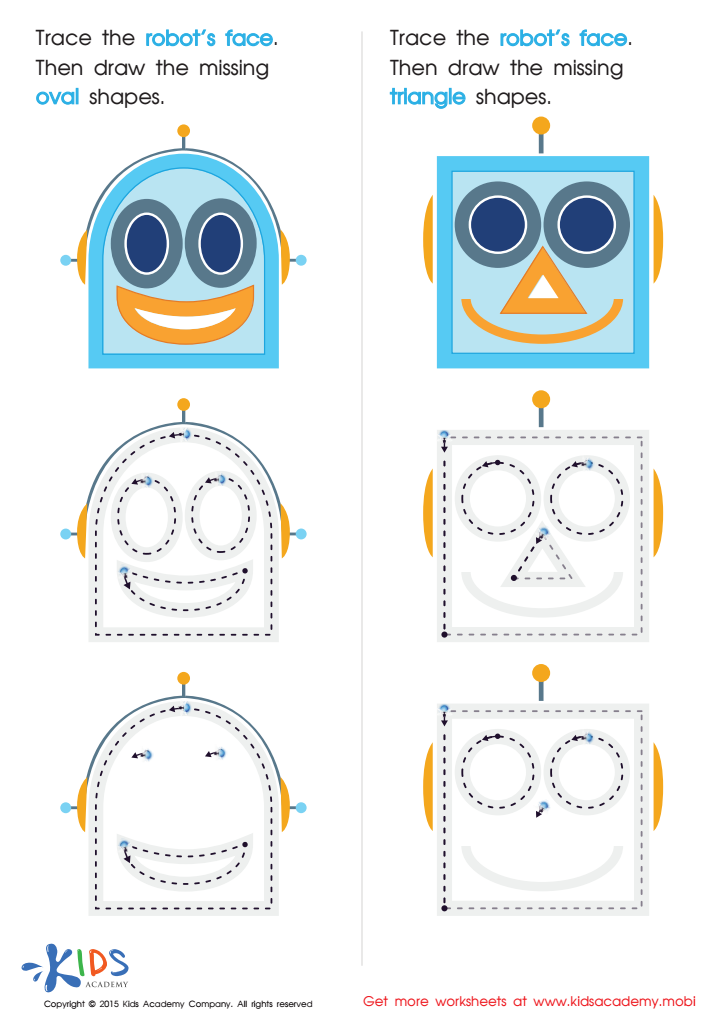

Drawing Ovals And Triangles with Fun Printable
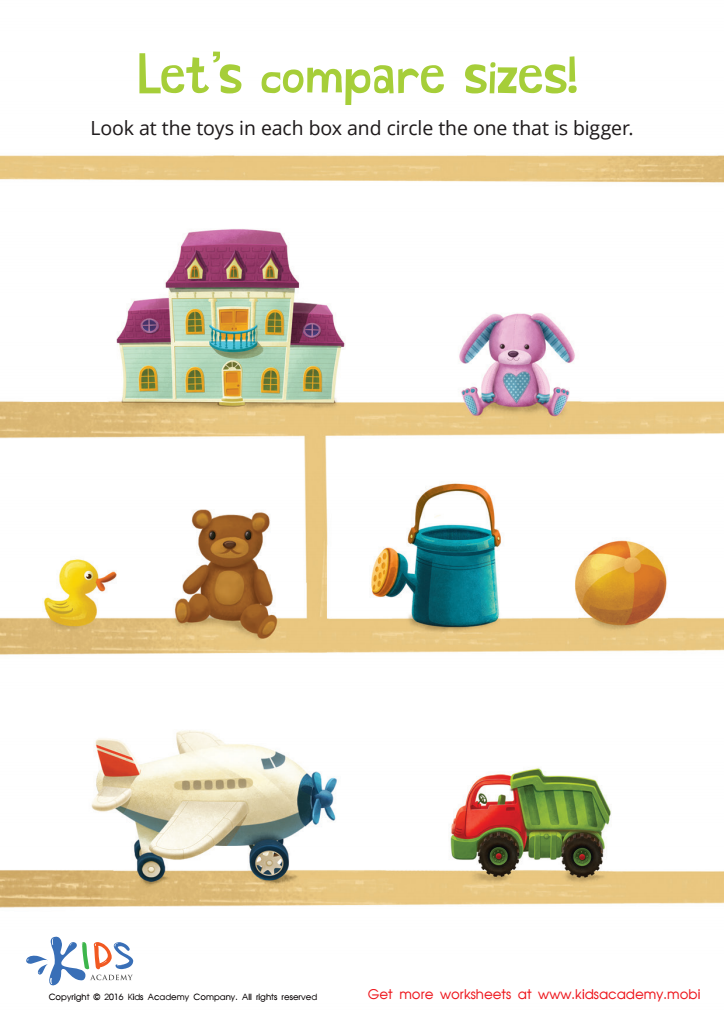

Classifying by Size Sorting Worksheet
Understanding basic geometry is crucial for children aged 3-9 as it lays the foundation for their overall mathematical development and cognitive skills. During these formative years, children are naturally curious and eager to explore their environment. Introducing geometric concepts such as shapes, sizes, spatial relationships, and symmetry helps them make sense of the world around them and enhances their problem-solving abilities.
Parents and teachers should prioritize geometry because it supports various essential developmental skills. For instance, recognizing and categorizing shapes fosters critical thinking and the ability to classify objects, which is fundamental in mathematics. Additionally, activities involving geometric concepts promote fine motor skills through hands-on learning experiences, such as drawing shapes or using building blocks.
Furthermore, early geometry education boosts language development as children learn to describe shapes and spatial relationships, building their vocabulary. It also promotes creativity through the exploration of patterns and symmetry. As they grow, these foundational skills become increasingly important for more complex math topics, enabling children to become proficient in math and logical reasoning.
Ultimately, investing in geometry understanding supports children’s confidence, academic success, and prepares them for future learning, making it essential for both parents and educators.
 Assign to My Students
Assign to My Students
